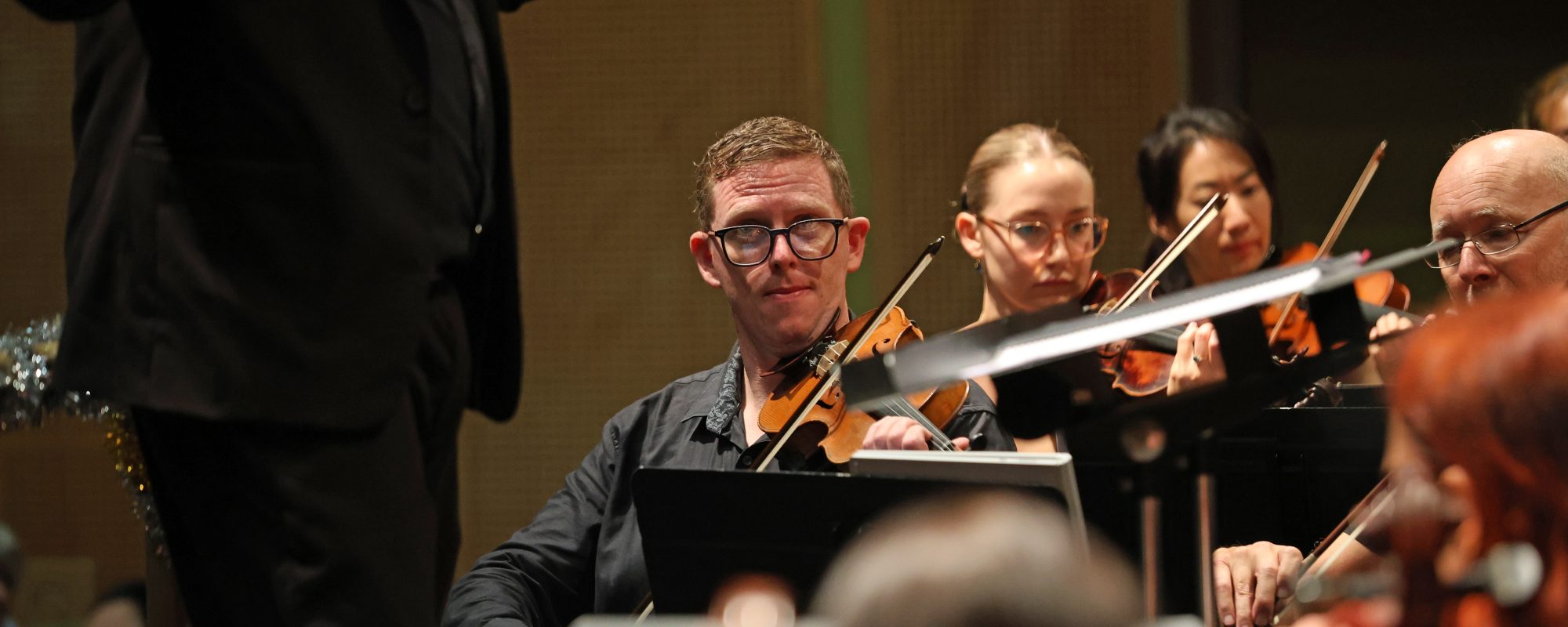Today I attended my first official PD day as a teacher – and I haven’t even started as a teacher. That’s because over the summer holidays, the WA chapter of the Australian Society of Music Education (ASME) hold their summer school. Two full days of professional learning sessions that aim to upskill, inform, inspire and provide networking opportunities for music educators in WA. Teachers give up two days of their school holidays to come and engage in a wide variety of sessions. These sessions range from early childhood through to ATAR streams, and everything inbetween.

Last year, I had the opportunity to attend as a volunteer. As a Edith Cowan University School of Education student, the opportunity was provided to attend (and gain free membership to ASME for a year) in return for helping set up, introduce sessions, be a gopher, and pack up. This year, however, I was excited to attend as a participant. The choice of sessions was up to me, choosing ones that I felt would best aid me as I enter my new role.
Keynote address – Functions of Music
The day formally started with a Welcome to Country, initial welcome to the ASME Summer School and a singalong (to which I got many ideas from). Then Dr Jason Goopy – ECU lecturer in Seconday Music Education amongst many other things – presented the keynote on stepping outside the structures of curriculums and syllabus and to explore the various functions of music in our lives and how school-based music education prepares students to become musical people. This was a really interesting topic, and one that would expand into other areas as we consider curriculum changes. In effect, the curriculum will change what we teach. However, the end goal of music education is to prepare children and young people to become musical people, because to be human is to be musical.
Dr Goopy based a lot of his talk of Merriam’s Uses and Functions of Music. However, I was particularly interested in his link to Csikszentmihalyi’s Flow theory, and the idea of music being an autotelic experience. An autotelic experience is something where doing the experience is the reward in and of itself. I also particularly liked one quote by Dr Goopy. He said more and more young people were experiencing music by “messing around to deeper immersion through geeking out.” I think that’s certainly an idea that I would like to explore further.
Neurodiverse music education

Then I had my first session, where I attended Delyse Clayden’s session entitled Teaching Music to Neurodiverse and Disabled Students. Dee is a PhD candidate at ECU, and uses her teaching and personal experience to inspire her study into giving disabled students a voice in the formation of their IEPs. Dee gave us a thorough background about the appropriate language to use (including noting that it is a flexible thing and often changes). She then explored ideas around how to create inclusive education for all students. This was done through differentiation, reasonable adjustments and universal design for learning.
This was a great session – and one that is very much needed. However, as someone who is neurodivergent and lives with a neurodivergent family, I had hoped for some more practical ideas as to how to approach teaching, as opposed to the history and language which I’m already well aware of. But I’m sure that for those who are still new to this space, it was a very helpful unit.
Following morning tea, and a brief Taiko demonstration, we had a panel Question and Answer session. There were a number of questions about panellists’ research (particularly Jason Goopy’s upcoming research into community music groups and their work in trauma informed practice), ways of advocating for music education in schools – both at a school level and a departmental/governmental level, and the use of various programs/instruments in school settings.
Choral Conducting
It was then lunch time, and then I had two sessions with Su-Lyn Chong on Choral Conducting. These were the sessions that I was most looking forward to, as I will be starting up a new choir at my school. I realised it has been near on 10 years since I last conducted a choir. Going through some excellent practices and techniques to support students in their singing has given me an excellent starting point heading forward. There’s still going to be a lot to learn, but I now know a lot of where to be starting from in looking for additional resources.
ASME Summer School Networking
Finally, it was a time for networking at ECU’s Birra Bar. A fantastic time to catch up with friends and colleagues, and discuss what had been happening over the last year. As music teachers, often we are the only one in our school – where as there might be 4 or 5 (or more) English or Maths teachers, there is often only one music teacher. That means that these opportunities to network, catch up, reminisce, inspire are vitally important. An interesting thing that I noted was that there were three students from my high school who were in attendance as music teachers, as well as one of our music teachers, who went on to become the head of music at that school, and the current head of music at that school who had taken over from our music teacher. It’s amazing to think of the legacy that has been forged through these teachers because of the influence they had on our lives.
So that was my experience of Day one of the 2023 ASME Summer School. It’s been a full on day, and I am looking forward to another day tomorrow, for another three sessions that I’m sure will spark a lot of ideas for me.

